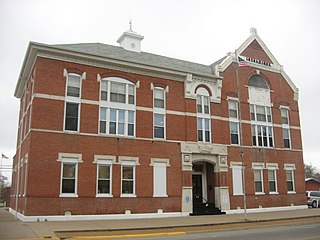
White County is a county located in the U.S. state of Illinois. According to the 2020 census, it had a population of 13,877. Its county seat is Carmi. It is located in the southern portion of Illinois known locally as "Little Egypt".

Ludlow is a village in Champaign County, Illinois, United States. The population was 308 at the 2020 census.

Pesotum is a village in Champaign County, Illinois, United States. The population was 551 at the 2010 census.
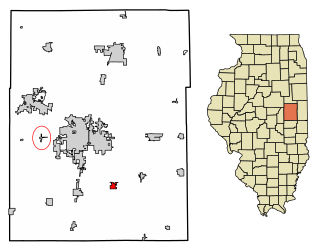
Philo is a village about nine miles south of Urbana in Champaign County, Illinois, United States. The population was 1,392 at the 2020 census.
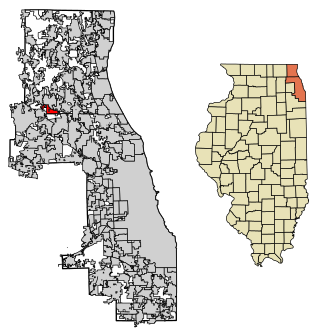
Deer Park is a village in Lake and Cook Counties, Illinois. Per the 2020 census, the population was 3,681. The village is one of the few left in the Chicago area that enjoy a green belt which is bordered by two large natural areas providing outdoor recreation and open space. The village is home to popular shopping and dining destinations: Deer Park Town Center and the Town Center Promenade. The town is also home to the Vehe Farm, an Illinois Centennial Farm.

Edgewood is a village in Effingham County, Illinois, United States. The population was 440 at the 2010 census, down from 527 at the 2000 census. Edgewood is part of the Effingham, IL Micropolitan Statistical Area.

Piper City is a village in Ford County, Illinois, United States. The population was 826 at the 2010 census.

Omaha is a village in Gallatin County, Illinois, United States. The population was 266 at the 2010 census.

Ridgway is a village in Gallatin County, Illinois, United States. As of the 2020 census, the population was 851. As of 2018, Rebecca Mitchell was the town mayor.

New Burnside is a village in Johnson County, Illinois, United States. The population was 211 at the 2010 census.

Bonfield is a village in Kankakee County, Illinois, United States. Bonfield's population was 382 at the 2010 census. It is included in the Kankakee-Bradley, Illinois Metropolitan Statistical Area.

Lake Villa is a village in Lake County, Illinois United States. Per the 2020 census, the population was 8,741. Lake Villa lies within Lake Villa Township and about 50 miles north of Chicago and is part of the United States Census Bureau's Chicago combined statistical area (CSA).

Chatsworth is an incorporated town in Livingston County, Illinois, United States. The population was 1,332 at the 2020 census.

Cornell is a village in Livingston County, Illinois, United States. The population was 467 at the 2010 census.

Cullom is a village in Livingston County, Illinois, United States. Cullom is situated twenty miles east of Pontiac which is the county seat, and is one mile west of the Ford County line. The population was 555 at the 2010 census.
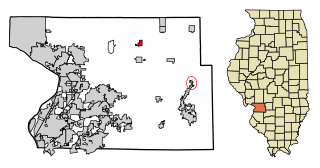
Worden is a village in Madison County, Illinois, United States. The population was 1,096 at the 2020 census.

Creston is a village in Ogle County, Illinois, United States. The population was 627 at the 2020 census, down from 662 in 2010.

Davis Junction is a village in Ogle County, Illinois, United States. The population was 2,512 at the 2020 census. Named for Jeremiah Davis, it is located where the Illinois Railway Rockford Line and the Canadian Pacific Railway Chicago Subdivision intersect along Illinois Route 72. It is the site of the Orchard Hills Landfill - one of the largest in the United States.

Stonefort is a village in Saline and Williamson Counties, Illinois, United States. The population was 297 at the 2010 census.
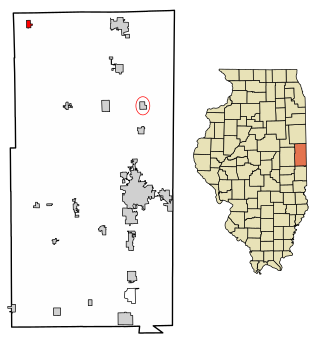
Rankin is a village in Butler Township, Vermilion County, Illinois, United States. It is part of the Danville, Illinois Metropolitan Statistical Area. The population was 561 at the 2010 census.























